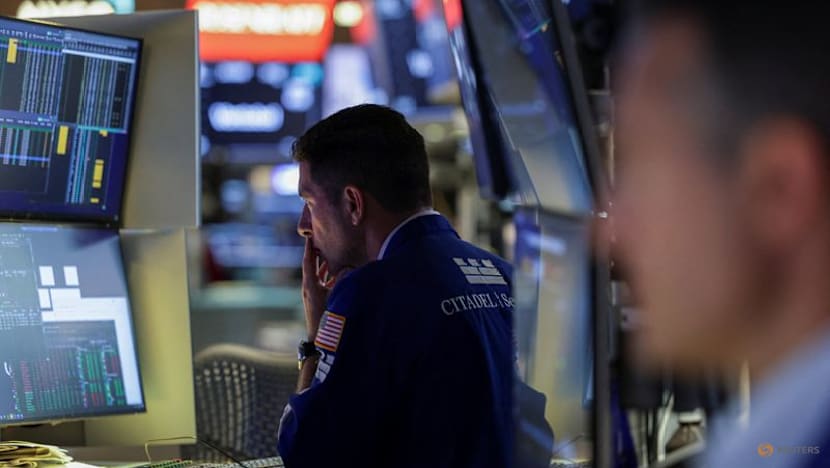US stocks brush record highs as weak jobs data fuel rate cut bets

NEW YORK/PARIS :U.S. stocks briefly hit record highs on Friday before reversing course to trade lower, after data showing U.S. job growth cooled in August led investors to double down on bets that the Federal Reserve might cut interest rates later this month, maybe by as much as 50 basis points.
Speculation that the Fed might lower rates more aggressively caused Treasury yields to nosedive and knocked the U.S. dollar lower, but drove gold to a new record high that approached $3,600 per ounce.
Lower interest rates, which could lead to lower borrowing costs for businesses, are generally seen to be a boon to equity markets. Gold, which does not pay interest, also tends to shine when rates are low and uncertainty is high.
"This number today puts a 50-basis-point rate cut at the next meeting back on the table," Art Hogan, a strategist at B Riley Wealth Management in Boston, said about the Fed's upcoming policy meeting on September 17. "More significantly, I think 75-basis-point before the end of the year is now pretty much of a lock."
U.S. data showed nonfarm payrolls increased by only 22,000 jobs last month after rising by an upwardly revised 79,000 in July, missing forecasts for a gain of 75,000 positions.
The S&P 500 Index hit a record high of 6,532.65 points in early trade before pulling back to be down 0.32 per cent. The Dow Jones Industrial Average also hit a record high in the first few minutes of the trading day before retreating 0.5 per cent, while the Nasdaq Composite Index finished unchanged.
In line with expectations of lower rates, the two-year Treasury yield was last down 6.4 basis points at 3.5277 per cent, while the benchmark 10-year yield sagged 8.3 basis points to 4.0934 per cent.
Lower Treasury yields weighed on the U.S. dollar, with the dollar index down 0.5 per cent at 97.747. A softer dollar helped to support the euro, which rose 0.6 per cent at $1.17625.
In Europe, the STOXX 600 was down 0.2 per cent, the FTSE 100 was unchanged, and France's CAC 40 lost 0.3 per cent. Muted equity performance across the board led the MSCI World Equity Index to finish just 0.13 per cent higher.
"The warning bell that rang in the labor market a month ago just got louder," Olu Sonola, head of U.S. economic research at Fitch Ratings in New York, said in reference to the U.S. labor market. "A weaker-than-expected jobs report all but seals a 25-basis-point rate cut later this month."
Fed Chair Jerome Powell had already reinforced rate cut speculation with an unexpectedly dovish speech at last month's Fed symposium in Jackson Hole.
Market sentiment has recovered in recent days after global stocks fell earlier this week and long-dated bond yields in Europe hit their highest in years, as investors became concerned about the state of various countries' finances, particularly Britain and France.
Yields eased on Friday, with France's 30-year yield at 4.3873 per cent, down from a peak of 4.523 per cent on Wednesday, and the UK's 30-year yield at 5.553 per cent, after borrowing costs hit their highest level since 1998 earlier in the week.
The benchmark 10-year German yield was at 2.7051 per cent. German industrial orders unexpectedly fell in July, data on Friday showed.
After months of negotiations, the U.S. signed a deal to impose lower auto tariffs on Japan. The dollar was down 0.7 per cent against the yen, with the pair at 147.5.
Oil prices declined for a third consecutive day, ahead of a meeting of OPEC and allied producers over the weekend. Brent crude futures settled 2.2 per cent lower at $65.50 a barrel, while U.S. crude fell 2.5 per cent to $61.87.
The European Union's energy commissioner said the bloc would welcome U.S. President Donald Trump's plan to stop buying Russian oil.
Spot gold was up 1.2 per cent at $3,589.01 per ounce, having hit a record $3,597.66 earlier. The metal is now on track for its strongest weekly gain in nearly four months.













